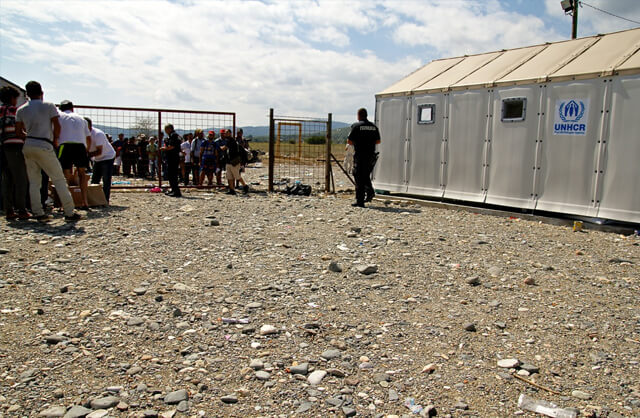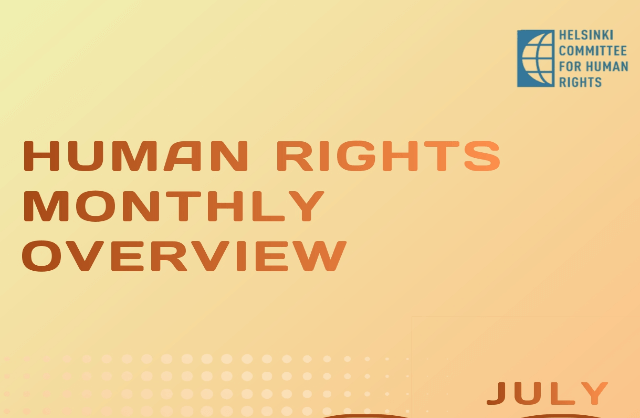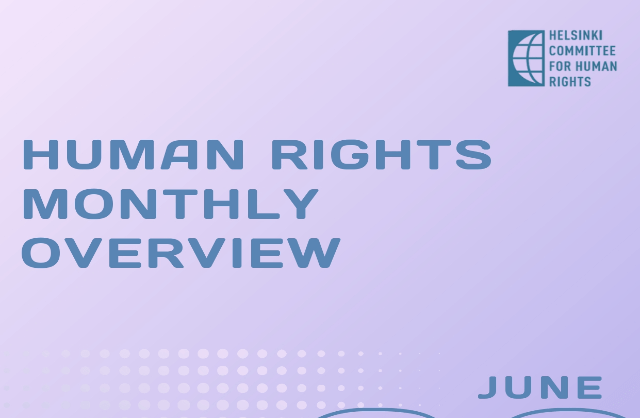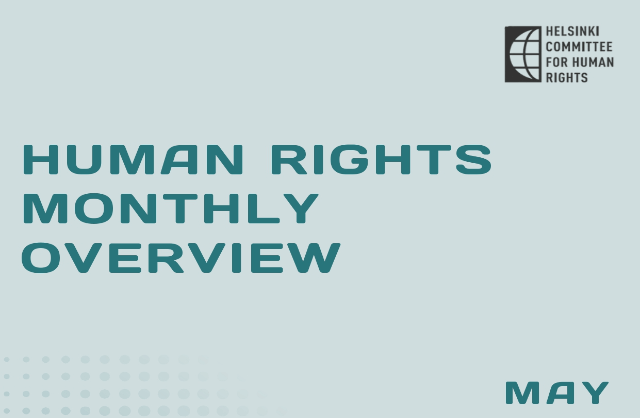The situation at the border crossings Gevgelija and Kumanovo for the period: 06.03.2017 – 12.03.2017
March 15, 2017

The weekly report on the situation at the border crossings Gevgelija and Kumanovo includes the following topics: Available facilities and conditions at the camp and Institutional treatment.
Gevgelija
Available facilities and conditions
The number of refugees, which amounted to 49 at the start of the week, dropped to as few as eight at the end of the week, after the refugees from the camp had been transported to Greece at their own requests on several occasions.
The camp hygiene has deteriorated, especially in the toilets which are rarely cleaned, and this is due to the irregular cleaning and lack of resources.
On 08.03.2017, about 30 police officers from the Republic of Hungary arrived to the camp, and will patrol in the vicinity of the camp and in Gevgelija.
On 09.03.2017, representatives of the National Preventive Mechanism (the Ombudsman) paid a visit to the camp, whereby a poster with an explanation of the role, competence and authorization of the National Preventive Mechanism was set up, translated in 6 languages. The poster was placed in front of the La Strada facility.
Institutional Treatment
Over the week, a total of 41 refugees who were accommodated in the camp were transported to Greece at their own request in 3 turns. On 07.03.2017, 13 refugees from the camp, after announcing it for a longer time, requested to be transported to Greek territory, due to the hopeless situation that they had been facing for an entire year, after they were got stranded in the camp in Gevgelija. On 11.03.2017, a four member family asked to be transported to Greece. On 12.03.2017, a total of 24 refugees from the camp, also after staying there for one year, all originating from Iraq, requested to be transported to Greece. With this, a total of 8 refugees are left in the camp, all of them from Iraq, some of whom are running procedures for family reunion or going back to their native countries.
On 06.03.2017 one person originating from Afghanistan was brought to the camp, after he had gone to Serbia by train, intending to proceed towards Greece. Soon after, he was deported to Greece. On the same day, three Albanian citizens were caught by the police in the vicinity of the village of Udovo, without having any personal identification documents on them.
Kumanovo
Available facilities and conditions
The number of refugees in the camp varies between 30 and 50. The numbers are not steady and it is impossible to track them down as refugees constantly enter and exit the camp, while the competent institutions working on-field, do not keep joint records.
There have been no major changes to the camp infrastructure.
Institutional treatment
Most of the refugees staying the camp originate from Algeria, Morocco and Pakistan.
The refugees staying in the vicinity of the camp are provided with food by the Red Cross mobile team.
A family from Afghanistan, a man and his pregnant wife, were transported to Greece.
The situation at the Shelter Centers in the Republic of Macedonia
The number of refugees in the Shelter Centers is not available.
Irregular migration
On the course of this period, the Ministry of Interior did not register a single criminal or legal event related to refugee or migrant smuggling.


